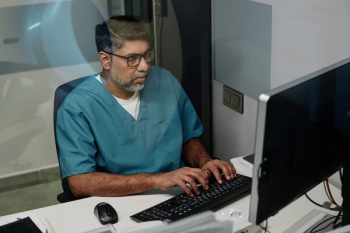
Another Momentous Discovery in the World of Patient Care
In our healthcare system, there isn’t a great sense of freedom of choice.
One keeps on hearing about how print media are going the way of the dinosaur. Newspapers and the like, we’ve been told, are all but dead and buried as everyone will be getting their content digitally.
Meanwhile, I’m getting at least as many unasked-for periodicals as I ever have. Many play at being professional journals. That illusion doesn’t hold up under the most cursory of glances, but it sure doesn’t stop them from trying, the little dears.
One of the “research studies” I encountered this week proclaimed a not-exactly Earthshattering discovery: Patients react positively to being treated as desired customers…and negatively if they believe they’re being taken for granted.
Not exactly rocket science, this stuff; I posit that anybody with half a brain would be able to tell which measures are likely to gratify versus annoy (if not infuriate) the patients a practice presumably wants to retain. Here, try it yourself:
- Threatening patients with being charged for no-shows, for instance, while routinely keeping them sitting in the waiting-room well after their scheduled appointments were supposed to occur (maybe because the office routinely double-books, or accepts walk-ins even when the schedule is overflowing).
- Rescheduling patient appointments due to issues in the office-with no shorter a wait than would have happened if the patient had, himself, had to cancel. (For instance, a pain-management case I know of got to wait an extra month because her doc had to nix her initial appointment.)
- Offering a safety-net of reminders (phone calls, emails, etc.) reminding patients when an appointment is coming up.
- Subjecting them to endless runaround on your phone-system’s touchtone-maze, versus making it easy for them to communicate with their doc-even if that just means taking their information so that the physician will phone them back when able.
- Having a robust web-portal on which patients can view all of their relevant information, and enter non-emergent inquiries if they have any, versus offering such a portal, but failing to maintain it and only giving the illusion of such added access.
One can’t place too much blame (or credit) on the docs in this picture. First off, an awful lot of them have zero input into how their departments or practices run. Either because they are simply cogs in the machine, or they have given way too much leeway to office managers and other staff who may or may not proceed to be varying shades of uncaring, tyrannical, and/or malicious.
There’s also the unfortunate fact that, in our healthcare system, there isn’t a great sense of freedom of choice. However much we might ballyhoo that ours is a free-market affair…it really isn’t. Unless you’re in the enviable position of running a cash-only, “concierge” type practice where it’s just you and your patients calling the shots, there’s a horde of insurers, regulators, and other interlopers telling you and your patients what you can and cannot do…and often how you must do it. Not to mention imposing reimbursement rates that leave you with such a razor-thin margin that something’s gotta give. Which often turns out to be stuff that doesn’t directly show up on the ledger, such as patient satisfaction.
Thus, it’s easy to lose sight that a patient, or family thereof, might get sufficiently fed-up as to no longer show up at your office. It doesn’t matter whether there are a hundred other docs offering exactly the same services that you do, or zero (literally, if you are way out in the boonies, or effectively such as result of vanishingly few providers in the patient’s network with available appointments).
0-100 options for services other than yours, there is always an n + 1: The extra option being that the patient is vexed enough as to simply stop pursuing whatever medical care s/he was supposed to be getting.
I’ve written columns in the past about the importance of being proactive rather than reactive about this stuff. Also how, if proactive measures have failed, how reaction might best occur. Before any of that can happen, though, the first step, as the saying goes, is recognizing the problem…and its importance.
Newsletter
Stay at the forefront of radiology with the Diagnostic Imaging newsletter, delivering the latest news, clinical insights, and imaging advancements for today’s radiologists.












